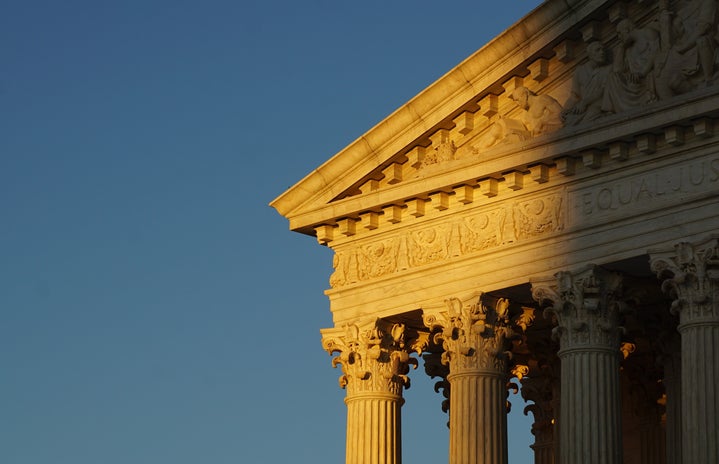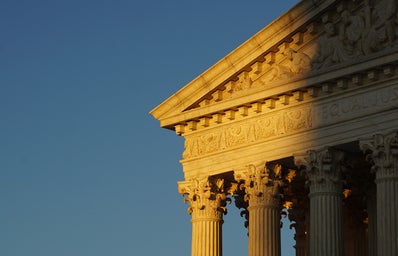U.S. Supreme Court justices are meant to be unbiased, nonpartisan interpreters of the Constitution. After all, justices serve for life terms to maintain an independent Judiciary and to ensure protection from political pressure. This is valued highly, as the personal political views of the majority should not undermine fundamental American values, such as freedom of speech, due process of law, and freedom of religion.
However, politics undoubtedly play a role in the selection of U.S. Supreme Court justices, who are appointed by the President and confirmed by the Senate. In most cases, presidents nominate justices who are in their political party. This makes sense, as justices’ political ideologies– whether liberal or conservative– are often strong predictors of how they will vote, especially in cases where their vote is pivotal, according to a 2018 study by Northwestern University.
Clearly, this doesn’t live up to the promise of an impartial judicial institution, and public opinion reflects this. According to a 2022 Gallup poll, a record-low 47% of Americans trust the judicial branch, 40% express job approval of U.S. Supreme Court (tied for record low), and a record-high 42% say that the Supreme Court is too conservative. Trust has dropped by a whopping 20% from 2020, and 7% from 2021, passing the previous 2017 record-low of 53%. Since trust levels are normally high, typically exceeding two-thirds, this is definitely a notable change.
So why is there so much disapproval? Approval ratings seem to correlate with controversial case rulings. In July 2022, approval ratings fell to 43% after Dobbs v. Jackson Women’s Health Organization, where the Court overruled Roe. v Wade and Planned Parenthood v. Casey. This took away the constitutional right to an abortion and gave states the authority over abortion regulation, which prompted public outrage and protests across the nation.
The Supreme Court is now the focus of negative public attention once again. According to nonprofit investigative journalism organization ProPublica, Justice Clarence Thomas has repeatedly accepted gifts and travel from billionaire Harlan Crow, without disclosing them as required under federal financial disclosure laws. One of these unreported instances, a trip to Indonesia involving a private jet and a superyacht, would have cost Thomas around $500,000.
Thomas released a statement, referring to the luxury trips as “personal hospitality from close personal friends” and was advised that they were not reportable. According to a poll from the Economist and YouGov, 58% of respondents– including 40% of Republicans– disapprove of Thomas accepting gifts without disclosing them. This disapproval of Thomas’s behavior has the potential to further corrode public opinion and trust of the Supreme Court.
Some members of Congress, such as U.S. Senators Elizabeth Warren and Bernie Sanders, have sent a letter to Chief Justice John Roberts, demanding that the Supreme Court investigate the allegations against Thomas. “Amidst all of this— perhaps due in part to the Court’s inaction— the American people’s trust in the Supreme Court has plummeted to an all-time low,” the letter states. “We believe that it is your duty as Chief Justice ‘to safeguard public faith in the judiciary,’ and that fulfilling that duty requires swift, thorough, independent and transparent investigation into these allegations.”
In my opinion, this could be a chance to restore public trust in the Supreme Court. If meaningful, timely action is taken to prevent and punish corruption within the judiciary, Americans might regain some sense of confidence in the Court. Or, if nothing is done, the message will be clear– Supreme Court justices can violate the code of ethics with no repercussions, which will worsen the already prevalent mistrust in the Court.


